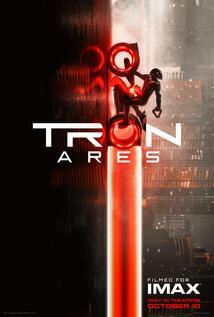

How did Disney manage to screw this concept up worse and worse with each attempt? The flaws in the first Tron are understandable. The filmmakers were trying to push the envelope with dazzling new technology (though almost all the effects in 1982's Tron were achieved with traditional hand-drawn animation techniques, and only 15 or so minutes of actual CGI are in the film), so they understandably fell back on their usual form of storytelling: granting human characteristics to non-human entities. Instead of mice, ducks, and dogs, Tron featured anthropomorphized computer programs, complete with genders, personalities, and emotions. The first legacequel, Tron: Legacy, the directorial debut of Joseph Kosinski, provided a prime opportunity to revisit that world with far more advanced digital technology, but Kosinski and screenwriters Edward Kitsis and Adam Horowitz forgot to craft a decent story, so the only notable aspects of Tron: Legacy are the enjoyable Daft Punk soundtrack and an early uncanny example of CGI de-aging technology.
The latest film, Tron: Ares, is much worse than either of its predecessors. It's a loud, cluncky mess with absolutely nothing to say about either artificial intelligence or humanity. TV actor Evan Peters plays Julian Dillinger, the grandson of David Warner's character in the original Tron. Julian is the CEO of his grandfather's company, which he inherited from his mother (Gillian Anderson in a thankless role). Julian creates the ultimate fighting program, Ares (Jared Lito), who he plans to unleash on the real world once he can figure out how to make the entities and hardware he transfers from the digital "grid" exist permanently in our world. In this future, no one has figured out how any 3D-printed beings last longer than 29 minutes. But almost as soon as Aries comes online, he starts to develop emotions, empathy, and a desire to be free from his master. He learns about Flynn, Jeff Bridges's character in the past Tron films, who built an empire from video games after becoming the first user to get digitized into the grid. After Flynn's death, his company was taken over by two sisters. One of them passed away from cancer, but the other sister, Eve, played by Greta Lee (Gemini, Past Lives), is also on the hunt for this "permanence code."
That's the basic setup, and I guess it makes sense, but the rest of the film lacks any logic. From the way the hardware and software function, to the characters' motivations, to the tired tropes of top-level tech people surrounding themselves with schlubby "comic relief" doofuses and futuristic characters having a taste for '80s pop (aren't we tired of this yet?), to the notion that a guy working at a gas station would own an Audi R8. Dillinger is one of the worst movie villains I've seen in a long, long time. He literally sits up in his office watching his programs execute his commands on a screen. I guess this lame role shouldn't be that surprising, since this is pretty much all Nicholas Hoult's Lex Luthor did in the terrible James Gunn Superman film released a few months earlier. I guess there must be at least 50 other villains over the past 30 years who have been limited to this type of "action," so I shouldn't be surprised. Ever since Goldeneye in 1995, we've been saddled with both heroes and villains who are tied to screens in rooms, and even when we go back-and-forth from those characters watching those screens, to the fighters or soldiers or spies in the field that they're giving commands to, every single time we cut back to someone looking at a screen it underminds any interest we have in the action being undertakem. There are very few exceptions to this; the opening to Skyfall is perhaps one, but I mean, come on, who wants to watch a movie where people just look at screens? It's the audience that looks at the screen, not the characters.
Of course, Warner's Ed Dillinger also just sat at a desk issuing commands, but in Tron, Warner got to play a dual role as the evil Sark, the program charged with hunting down Flynn once he's in the game. In this movie, Jodie Turner-Smith (Queen & Slim, After Yang, White Noise) gets that role. She's effectively sinister as Athena, Ares's henchwoman, but it is never explained why Ares, who is programmed to be the ultimate force of destruction, would develop a humanlike conscience so quickly and question his directives, while his second-in-command would not. Lee almost survives this movie without embarrassing herself, but not quite. (Her final shot features some cringeworthy green screen acting.)
Even when this movie takes us back to Flynn's 1980s arcade grid, with the original Tron's '80s style digital effects and a visit from an elderly Flynn—looking like The Dude by way of Marlon Brando's Jor-El—there's not much enjoyment here. That's because there's nothing for Flynn to pass on to Ares worthy of Jeff Bridges' presence. The Nine Inch Nails soundtrack is booming and thrusting, but lacks the ingenuity of Wendy Carlos's original themes or Daft Punk's atmospheric soundscape. Trent Reznor and Atticus Ross serve as executive producers on this phone, but their music is surprisingly bland and forgettable, as is this movie.
Perhaps the question shouldn't be, How did Disney screw this up again? Maybe it really should be, How the hell did anybody think that Tron was a substantial enough property to build an entire series or universe around. The original film, co-written and directed by Steven Lisberger, is by no measure a good movie, but it does have several aspects that make it a fun movie. In addition to the score and the undeniably cool visual graphics, there is Jeff Bridges' laughably over-the-top eager-beaver performance. Literally every one of his line deliveries is awful, but they're so awful that they're kind of amusing: "Because Man, somewhere in one of these.... memories, is the evidence!" Similarly, Tron's "magnificent" 70mm production values are undercut by Bruce Logan's cinematography, which suggests he couldn't convince Disney to rent enough lights to achieve decent exposure on the 70mm negative for the real-world scenes. The ludicrous story and campy spectacle of Tron still cast an oddly human spell on the viewer, making it a quintessential example of a 2 1/2-star movie. It's not good, but highly watchable and entertaining in its own unique so-bad-it's-good way. If only the same could be said of the sequels
We might have to admit that 1982's Tron is not a substantial enough property to build an entire series or universe around.




